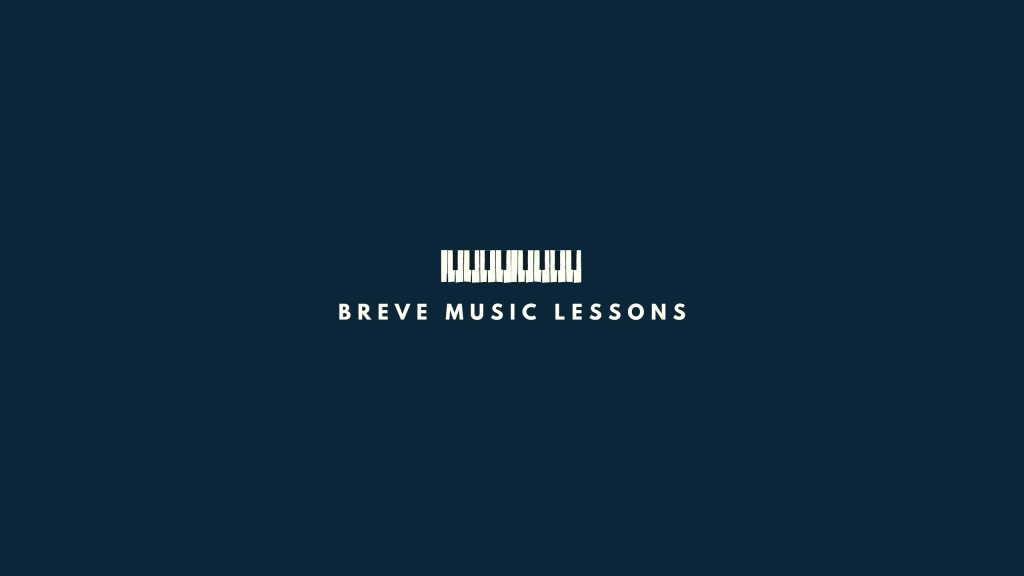Table of Contents
SoundExchange vs Music Reports: Understanding Why You Need Both
Understanding the intricacies of music royalties and the role of organizations like SoundExchange & Music Reports is crucial for artists, songwriters, and music publishers. With the rise of streaming services such as Spotify, Apple Music, and YouTube Music, the landscape of how royalties are collected and distributed has changed dramatically. This article will delve into the different types of music royalties, the function of SoundExchange and Music Reports, and how artists can effectively track their earnings.

What Are the Different Types of Music Royalties?
Understanding Performance Royalties
Performance royalties are a significant component of the music royalty ecosystem. These royalties are generated when a song is publicly performed, whether live or through digital platforms. Performing Rights Organizations (PROs) like ASCAP and BMI play a vital role in collecting these royalties on behalf of songwriters and publishers. When music is played on the radio, in a restaurant, or streamed on platforms like Pandora, performance royalties are generated. Artists and songwriters must ensure they are registered with a PRO to collect these royalties effectively, as they are a primary source of income for many in the music business.
Exploring Mechanical Royalties
Mechanical royalties are another essential type of royalty that artists and songwriters should understand. These royalties are earned when a song is reproduced, whether on physical formats like CDs or through digital downloads and streaming. The Mechanical Licensing Collective (MLC) is responsible for collecting and distributing these royalties in the United States. For songwriters and publishers, collecting mechanical royalties is crucial, as it compensates them for the use of their compositions. With the rise of digital service providers, understanding how to collect mechanical royalties has become increasingly important for artists looking to maximize their earnings.
How Songwriters Earn Royalties
Songwriters earn royalties through various channels, including performance royalties, mechanical royalties, and sync royalties. Sync royalties are generated when a song is licensed for use in television shows, movies, or commercials. This type of royalty can be particularly lucrative, as it often involves upfront payments in addition to ongoing royalties. For songwriters, collaborating with music publishers can enhance their ability to collect royalties, as publishers often have established relationships with PROs and can help navigate the complexities of the music industry. Understanding the different types of royalties and how they are earned is essential for songwriters aiming to secure their financial future in the music business.
How Does SoundExchange Collect and Distribute Royalties?
The Role of SoundExchange in the Music Industry
SoundExchange plays a unique role in the music industry by focusing specifically on digital performance royalties for sound recordings. Unlike traditional PROs that primarily handle performance royalties for songwriters and publishers, SoundExchange collects royalties for recording artists and record labels when their music is played on digital platforms. This includes streaming services like Spotify, Apple Music, and Amazon Music. By ensuring that artists receive fair compensation for their work, SoundExchange is a crucial player in the evolving landscape of music royalties.
How SoundExchange Differs from Other Rights Organizations
SoundExchange differs from other rights organizations, such as ASCAP and BMI, in that it specifically focuses on the royalties generated from sound recordings rather than compositions. While ASCAP and BMI collect performance royalties for songwriters and publishers, SoundExchange collects and distributes royalties for the actual sound recordings played on digital platforms. This distinction is vital for artists and record labels to understand, as it affects how they receive payments and the types of royalties they are entitled to. In essence, SoundExchange serves as a bridge between digital service providers and recording artists, ensuring that everyone involved in the creation of music is compensated fairly.
Understanding SoundExchange Royalties
SoundExchange royalties are divided into two main categories: royalties for featured artists and royalties for non-featured artists, such as session musicians. Featured artists receive a larger share of the royalties, while non-featured artists receive a smaller percentage. This structure is designed to ensure that all contributors to a sound recording are compensated for their work. Additionally, SoundExchange has streamlined the process of collecting and distributing these royalties, making it easier for artists to track their earnings and understand how much they are owed. As the music industry continues to shift towards digital platforms, understanding SoundExchange royalties is essential for artists looking to maximize their income.
What Is the Difference Between SoundExchange and Other Royalty Organizations?
SoundExchange vs. BMI: Key Differences
When comparing SoundExchange and BMI, it is essential to recognize their distinct roles in the music industry. BMI is a performing rights organization that collects performance royalties for songwriters and publishers when their music is played publicly. In contrast, SoundExchange focuses on collecting royalties for sound recordings played on digital platforms. This means that while BMI ensures songwriters are compensated for their compositions, SoundExchange ensures that recording artists and record labels receive payment for the actual sound recordings. Understanding these differences is crucial for artists to navigate the complex world of music royalties effectively.
Comparing SoundExchange and Songtrust
SoundExchange and Songtrust serve different purposes within the music royalty ecosystem. While SoundExchange focuses on collecting digital performance royalties for sound recordings, Songtrust acts as a global music publishing administrator, helping songwriters and publishers collect various types of royalties, including performance and mechanical royalties. Songtrust simplifies the process of royalty collection by registering songs with multiple PROs and rights organizations worldwide. For artists looking to maximize their earnings, understanding how SoundExchange and Songtrust complement each other can be beneficial in ensuring comprehensive royalty collection.
How SoundExchange Works with Streaming Services
SoundExchange collaborates closely with streaming services like Spotify, Apple Music, and YouTube Music to ensure that artists are compensated fairly for their work. When a song is streamed on these platforms, SoundExchange collects the digital performance royalties generated and distributes them to the appropriate rights holders. This process is crucial for artists, as streaming has become one of the primary sources of income in the music industry. By understanding how SoundExchange interacts with streaming services, artists can better navigate their earnings and ensure they are getting paid for their music played on these platforms.
How Can You Track Your Music Royalties and Earnings?
Understanding SoundExchange vs Music Reports
Tracking music royalties and earnings can be a daunting task for artists, but utilizing music reports can simplify the process. Music Reports provide detailed information about how often a song is played, the platforms it is streamed on, and the royalties generated from those plays. By regularly reviewing these reports, artists can gain insights into their earnings and identify trends in their music’s performance. This information is invaluable for artists looking to optimize their marketing strategies and increase their overall income from music royalties.
Collecting Owed Royalties and How to Claim Them
Understanding owed royalties is essential for artists to ensure they receive the compensation they deserve. Many artists may be unaware of the royalties they are owed, especially if they have not registered with the appropriate rights organizations. By actively monitoring their music reports and staying informed about their rights, artists can claim any unpaid royalties. This proactive approach is crucial in the music business, where missed payments can significantly impact an artist’s financial stability.
Tools for Tracking Your Royalties from Digital Services
Several tools are available to help artists track their royalties from digital services effectively. Platforms like CD Baby and DistroKid offer comprehensive dashboards that allow artists to monitor their earnings from various streaming services. Additionally, these platforms often provide insights into how songs are performing across different platforms, enabling artists to make informed decisions about their music careers. By leveraging these tools, artists can stay on top of their royalties and ensure they are maximizing their earnings in the ever-evolving music industry.
What Should You Know About Licensing and Collecting Royalties?
The Importance of Licensing in the Music Business
Licensing is a critical aspect of the music business that directly impacts how royalties are collected. When a song is licensed for use in a film, television show, or commercial, the songwriter and publisher earn sync royalties. Understanding the licensing process is essential for artists, as it opens up additional revenue streams and ensures that they are compensated for the use of their music. By working with music publishers and licensing agencies, artists can navigate the complexities of licensing and maximize their royalty earnings.
How to Collect Royalties from Different Platforms
Collecting royalties from different platforms requires a strategic approach. Artists must ensure they are registered with the appropriate rights organizations, such as SoundExchange for digital performance royalties and PROs like BMI or ASCAP for performance royalties. Additionally, understanding the specific requirements of each platform, such as Spotify or YouTube Music, is crucial for ensuring that royalties are collected efficiently. By staying informed and proactive, artists can effectively collect royalties from various platforms and enhance their overall earnings.
Working with Record Labels and Publishers for Royalty Collection
Collaborating with record labels and music publishers can significantly streamline the royalty collection process for artists. Record labels often have established relationships with rights organizations and can help ensure that royalties are collected and distributed efficiently. Similarly, music publishers can assist songwriters in navigating the complexities of royalty collection, ensuring that they receive the compensation they deserve. By working together, artists, record labels, and publishers can create a more efficient system for collecting and distributing royalties, ultimately benefiting everyone involved in the music business.
Additional Reading
More blog posts can be found here. Consider following Breve Music Lessons on Facebook.
